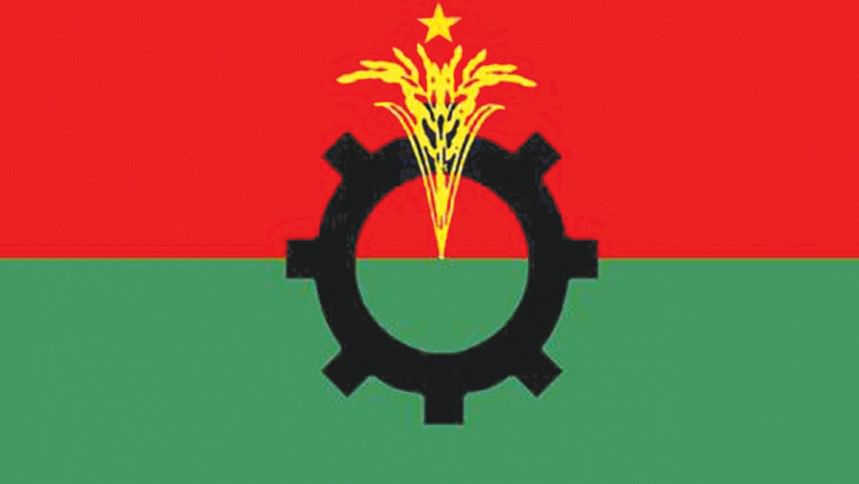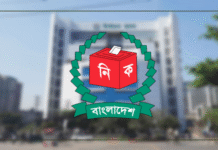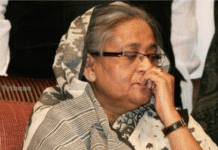
It is often said that patience pays off. For BNP, 2024 is the year its 17 years of perseverance started showing signs of bearing fruit.
However, 2024 started bleakly, with the Awami League helping itself to a fourth consecutive term in an election shunned by the BNP.
The BNP had banked that the Western nations would reject the results given the election was not free, fair and participatory and follow through with punitive measures. Ultimately, the Western world came around, stretching the BNP’s bid to come to power by perhaps another five years.
But by the middle of the year, with soaring inflation, a fraught economy and routine reports of AL men amassing vast amounts of wealth illegally, the public sentiment against the Sheikh Hasina-led government began to sour and the BNP sensed an opening to jumpstart its activities.
Before the BNP could get back on the field to mobilise the aggrieved masses came the university students’ protests centring on quota reform in government jobs.
The protests snowballed into a mass uprising and ultimately toppled the Hasina regime on August 5 — and turned the tide for the BNP. The party said at least 422 of its activists lost lives in the 36 days.
Overnight, the outsize political victimisation that the party and its leaders were subjected to over the past 15 years went into thin air.
Within hours of Hasina’s ouster, President Mohammed Shahabuddin commuted the prison terms of BNP Chairperson Khaleda Zia and the TV channels, in defiance of a High Court order from 2015, started broadcasting the party’s acting chairperson Tarique Rahman’s speeches.
From August 5, the 57-year-old Tarique, the party’s de facto leader since 2018, emerged as a leader in waiting, continually stressing religious harmony, national unity and calm.
In fact, he along with the party’s Secretary General Mirza Fakhrul Islam Alamgir often comes across as one of the voices of reason in the new political landscape of charged rhetoric.
The party has also been acting as a ballast to the country’s plunge into any sort of constitutional vacuum and political complications.
For instance, when the Anti-Discrimination Student Movement, which initiated the quota protests, demanded the resignation of President Shahabuddin, the scrapping of the constitution and the proclamation of a second republic, the BNP vetoed the move and the other political parties joined in.
In the end, Chief Adviser Muhammad Yunus decided not to go along with the student leaders’ demand.
Similarly, when the student leaders and their sister platform Jatiya Nagorik Committee insisted on banning the AL, the BNP tacitly expressed its reservations with the extreme step and prevailed.
Sensing the public pulse, the party relaunched its 31-point structural reform agenda, first presented in 2018.
The reform agenda includes limiting the tenure of any individual as prime minister to two consecutive terms to prevent the recurrence of authoritarian rule in Bangladesh and a bicameral parliamentary system for checks and balances of power between different parts of the government.
The party is now holding workshops countrywide on the 31-point reform agenda for feedback from the grassroots level.
However, challenges remain for the BNP.
Despite warnings and disciplinary measures, the party has been unable to prevent its workers from thuggish activities like extortion and encroachment — a big gripe with the previous AL regime of 15 years.
More than 1,000 party members have been expelled for their involvement in rent-seeking and illegal occupation of properties and businesses and more than 12 committees were dissolved after allegations against members proved true, according to the BNP.
Tarique, who has been living in London since 2008, has repeatedly urged the public to hand over to law enforcement agencies anyone seeking rent or engaging in unlawful activities using any BNP placeholder. Yet, there seems to be little correction in behaviour among the party workers.
Keeping party discipline intact will be crucial for the BNP to convincingly sell to the masses its vision of ‘rules-based’ society.
Its student wing Chhatra Dal has also failed to make any waves on the university campuses in the wake of the enormous vacancy created by the ban on Chhatra League.
Most importantly, the BNP’s fight for a free and fair election has not ended either given the interim government’s greater preference for reforms over polls.
Although Yunus has announced the election is likely to be held at the end of 2025 or in the first half of 2026, the BNP has demanded an election within four to six months, a timeframe the party deems adequate to carry out the reforms needed for free and fair polls.
So, it appears that the BNP will start 2025 in the same spirit that it kicked off 2024: continuing the fight to restore democracy in Bangladesh. But this year, the party has the clearest sight in 17 years at the goal.
“If a free and fair election were to be held, the BNP is the party best positioned to form the next government,” said Al Masud Hasanuzzaman, retired professor of Jahangirnagar University’s department of government and politics.
Daily Star









